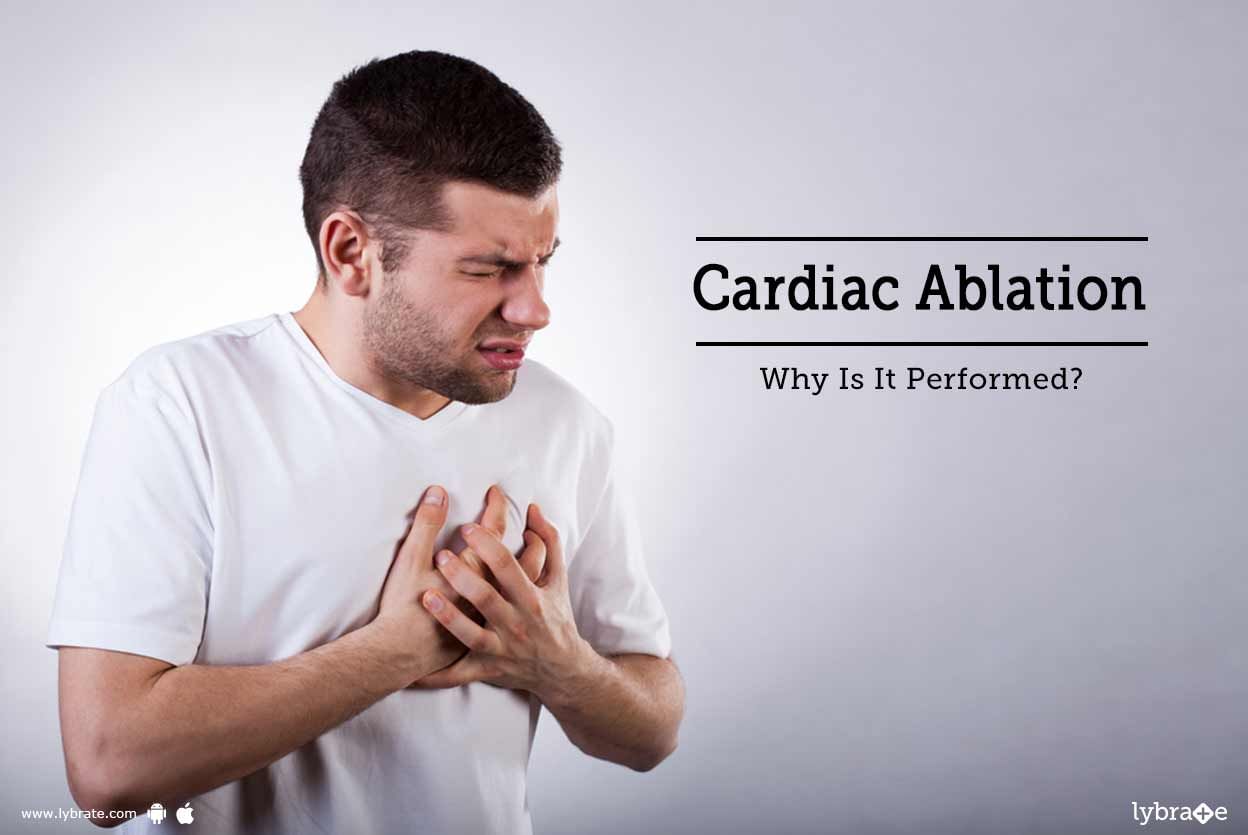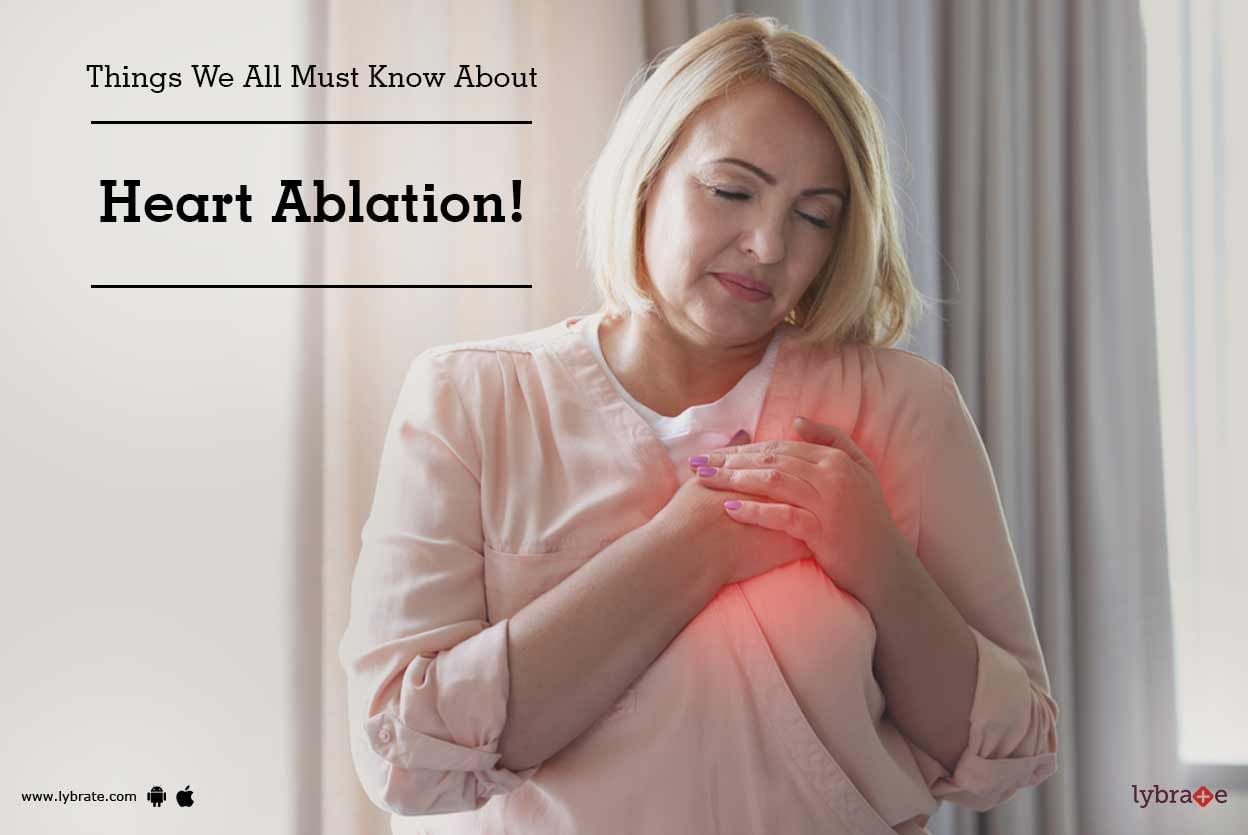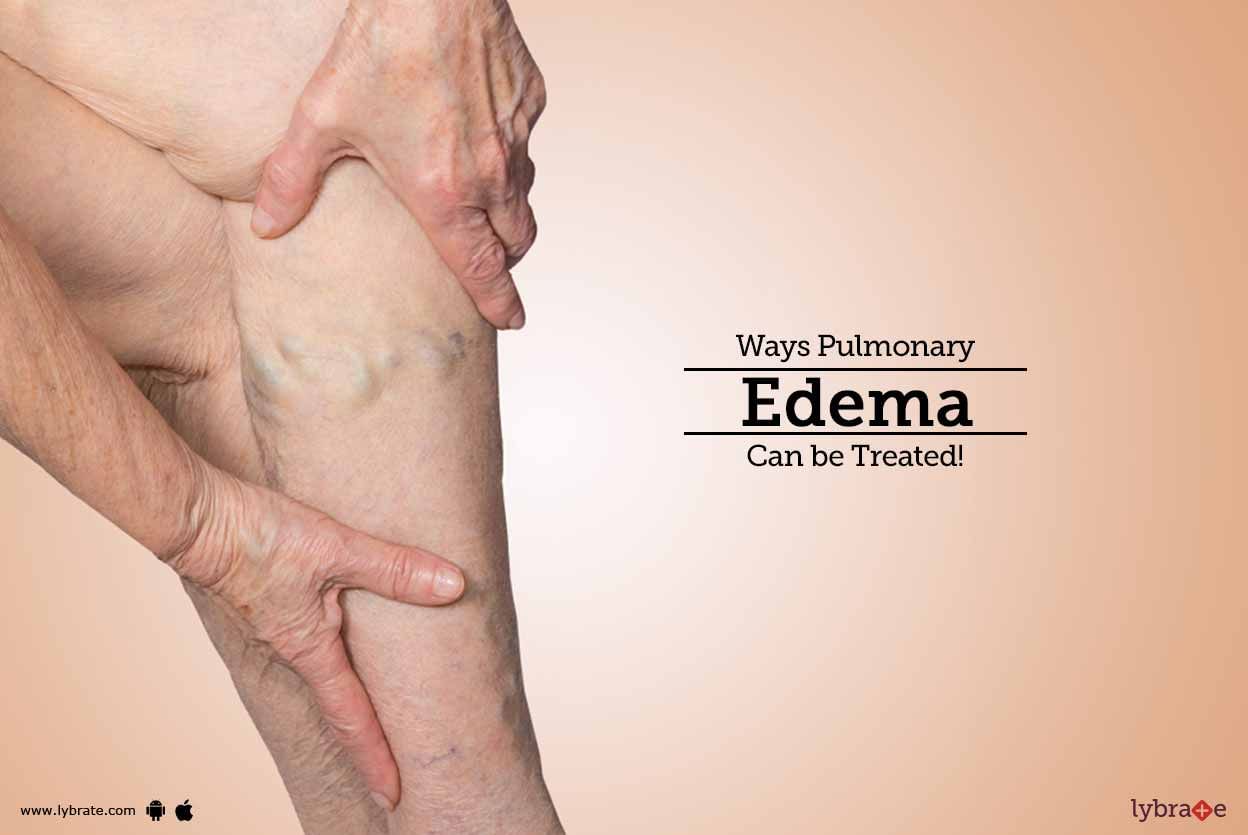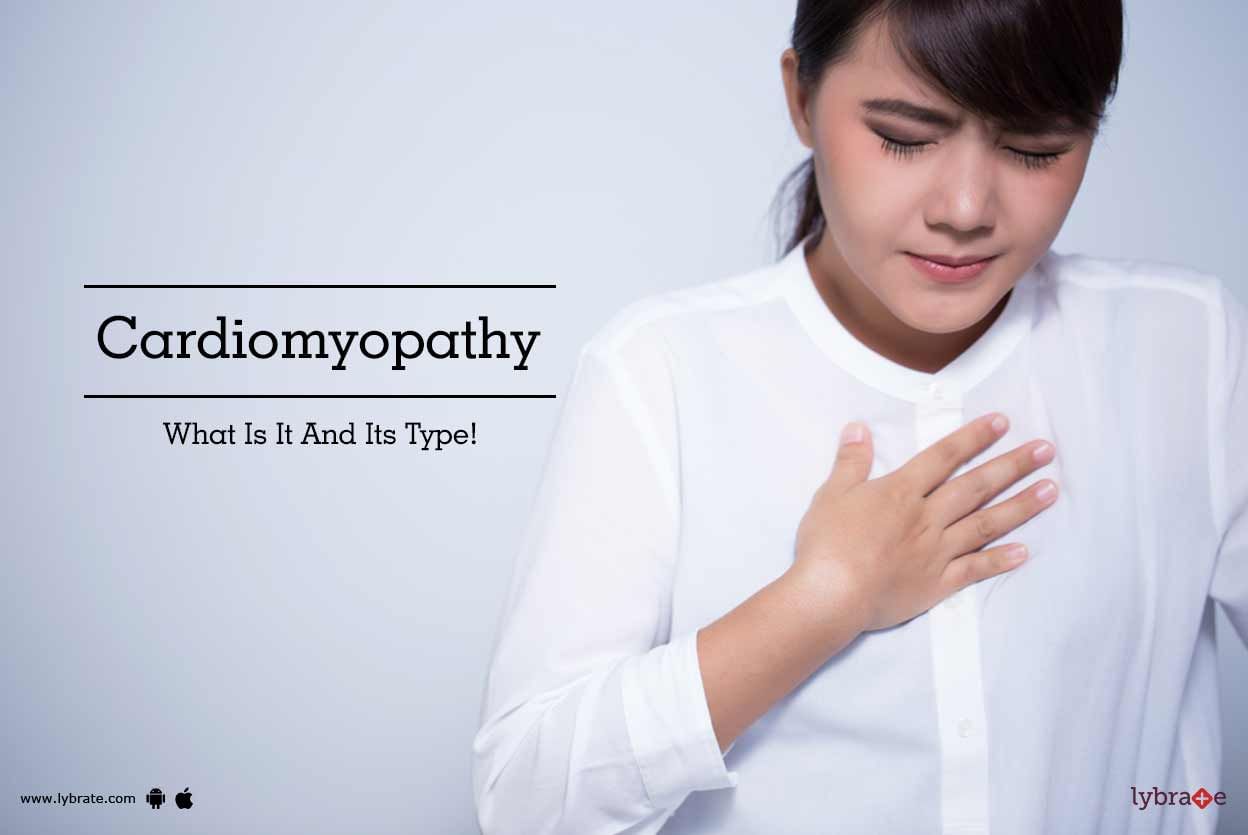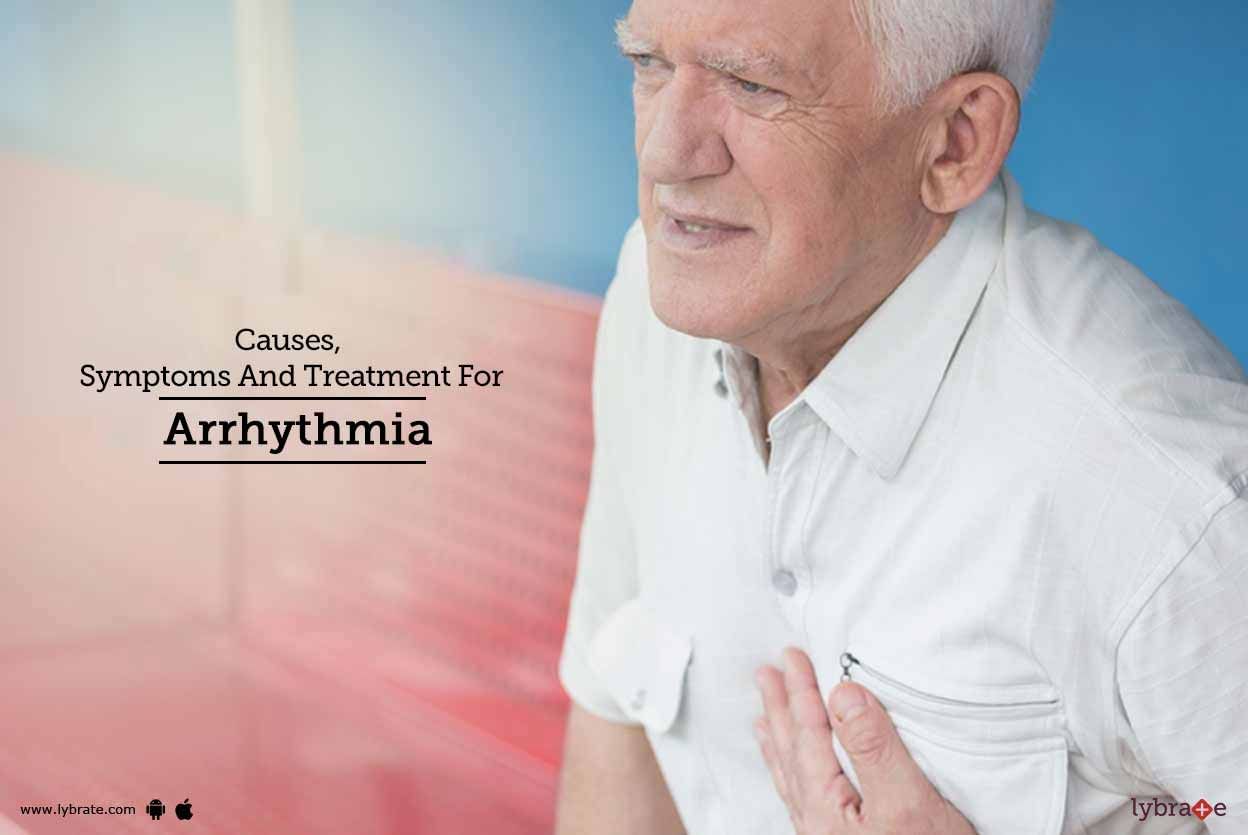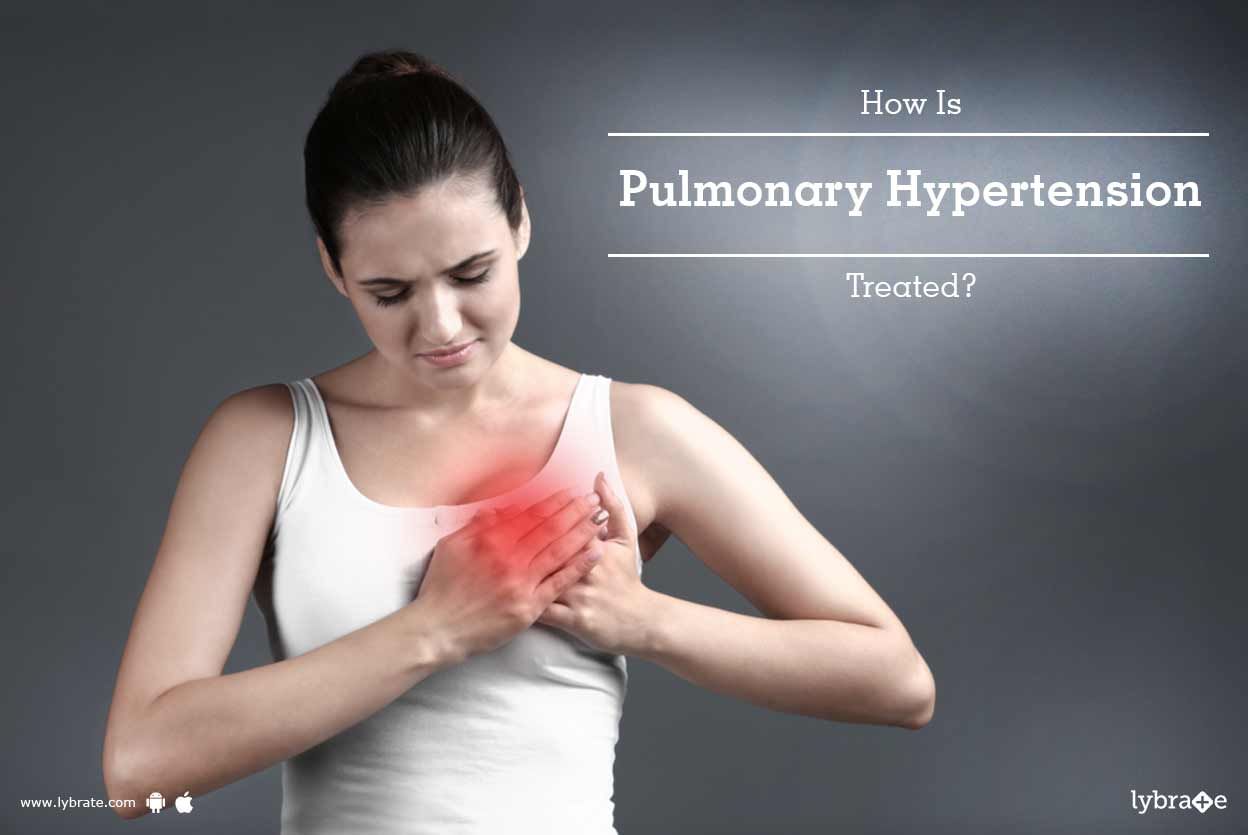Get the App
For Doctors
Login/Sign-up
About
Health Feed
Find Doctors
Health Packages
AllQ&AsTipsQuizzes
Cardiac Catheterization Tips
Last Updated: 7 years ago• Featured Tip
Share
Bookmark
Report
MBBS Bachelor of Medicine and Bachelor o...read more
Internal Medicine Specialist•Secunderabad
Cardiac ablation is a procedure that can correct problems associated with heart rhythm. It is a procedure performed by an interventional cardiologist, a doctor who specializes in performing procedures related to the heart. During the procedure, small wires called electrodes are placed inside your heart to measure its electrical activity. When the source of the problem is identified, the tissue causing the problem is destroyed.
Methods of performing cardiac ablation: There are two method...more
Methods of performing cardiac ablation: There are two method...more
Last Updated: 7 years ago• Featured Tip
Share
Bookmark
Report
Heart ablation or cardiac ablation is a procedure done to treat irregular heartbeats or arrhythmias. It is performed by an interventional cardiologist, a doctor who specialises in doing procedures for heart problems and it involves threading long wires called catheters through a blood vessel into your heart. The irregular heartbeat is treated by delivering an electrical pulse using electrodes to specific areas of your heart.
Arrhythmias
A normal heart beats at a steady rate, but som...more
Arrhythmias
A normal heart beats at a steady rate, but som...more
Last Updated: 7 years ago• Featured Tip
Share
Bookmark
Report
The spine is one of the most delicate bones of the body. It literally supports the entire body and helps us walk upright. Any damage or degeneration of the same can lead to dire consequences ranging from pain to paralysis. Spine degeneration is something that progresses over time and does not happen overnight. The normal structure of the disc will be gradually lost in such cases, and there may even be changes in the vertebrae.
The discs may start thinning slowly, which will lead to pos...more
The discs may start thinning slowly, which will lead to pos...more
Last Updated: 7 years ago• Featured Tip
Share
Bookmark
Report
Pulmonary edema is a disorder wherein fluid accumulates in the lungs leading to lack of oxygen in the body. The usual cause of pulmonary edema is congestive heart failure (the muscles of the heart are unable to pump blood). In this disorder, the heart has to work extra hard to pump blood, so this adds extra pressure on the blood vessels that are present in the lungs. In a bid to relieve this added pressure, fluid is released into the lungs by the blood vessels.
The function of your lung...more
The function of your lung...more
Last Updated: 7 years ago• Featured Tip
Share
Bookmark
Report
Pulmonary edema is a disorder wherein fluid accumulates in the lungs leading to lack of oxygen in the body. The usual cause of pulmonary edema is congestive heart failure (the muscles of the heart are unable to pump blood). In this disorder, the heart has to work extra hard to pump blood, so this adds extra pressure on the blood vessels that are present in the lungs. In a bid to relieve this added pressure, fluid is released into the lungs by the blood vessels.
The function of your lung...more
The function of your lung...more
Last Updated: 7 years ago• Featured Tip
Share
Bookmark
Report
Heart disease is a serious medicla condition, and so is depression. Together, they can be harmful for the people suffering from them. It is seen that 33% of heart attack patients also suffer from depression. Interestingly enough, many patients having depression also have coronary artery disease (CHD) or adult congenital heart disease (ACHD).
Patients with heart disease (acquired or congenital) - are more likely to suffer from depression because heart problems directly and adversely i...more
Patients with heart disease (acquired or congenital) - are more likely to suffer from depression because heart problems directly and adversely i...more
Last Updated: 7 years ago• Featured Tip
Share
Bookmark
Report
Cardiomyopathy includes diseases involving the heart muscle. These diseases have various causes, types, symptoms and modes of treatment.
The heart muscle gets enlarged, thick or rigid. In several cases, the heart muscle tissue is replaced with a scar tissue. As this condition worsens, the heart gets weaker and the ability to pump blood is disrupted, which can cause heart failure or irregular beating of the heart. The weakened state of the heart can lead to valvar diseases.
The ...more
The heart muscle gets enlarged, thick or rigid. In several cases, the heart muscle tissue is replaced with a scar tissue. As this condition worsens, the heart gets weaker and the ability to pump blood is disrupted, which can cause heart failure or irregular beating of the heart. The weakened state of the heart can lead to valvar diseases.
The ...more
Last Updated: 7 years ago• Featured Tip
Share
Bookmark
Report
Cardiomyopathy includes diseases involving the heart muscle. These diseases have various causes, types, symptoms and modes of treatment.
The heart muscle gets enlarged, thick or rigid. In several cases, the heart muscle tissue is replaced with a scar tissue. As this condition worsens, the heart gets weaker and the ability to pump blood is disrupted, which can cause heart failure or irregular beating of the heart. The weakened state of the heart can lead to valvar diseases.
The ...more
The heart muscle gets enlarged, thick or rigid. In several cases, the heart muscle tissue is replaced with a scar tissue. As this condition worsens, the heart gets weaker and the ability to pump blood is disrupted, which can cause heart failure or irregular beating of the heart. The weakened state of the heart can lead to valvar diseases.
The ...more
Last Updated: 7 years ago• Featured Tip
Share
Bookmark
Report
Arrhythmia is a disorder which is characterized by improper and irregular heartbeats; be it too slow or too fast. This problem occurs when the electrical impulses that are used to regulate your heartbeat don t work in the correct manner. Your heart may beat irregularly, too slow or too fast.
Symptoms
Although this disorder does not yield many symptoms, a few noticeable symptoms of arrhythmia are slow heartbeat, or a racing heartbeat, chest pain, breathing difficulties and dizziness....more
Symptoms
Although this disorder does not yield many symptoms, a few noticeable symptoms of arrhythmia are slow heartbeat, or a racing heartbeat, chest pain, breathing difficulties and dizziness....more
Last Updated: 8 years ago• Featured Tip
Share
Bookmark
Report
Pulmonary hypertension is a medical condition that arises when the blood pressure remains consistently high in the vessels of the lungs. This condition can develop from a completely unrelated medical condition and is more prevalent among women.
Pulmonary Hypertension can be a hard disease to diagnose. While it has no permanent cure, the medication depends on how far the disease has advanced. From group 1 PAH to group 5 PAH, pulmonary hypertension has 5 stages of advancement.
...more
Pulmonary Hypertension can be a hard disease to diagnose. While it has no permanent cure, the medication depends on how far the disease has advanced. From group 1 PAH to group 5 PAH, pulmonary hypertension has 5 stages of advancement.
...more
Book appointment with top doctors for Cardiac Catheterization treatment
View fees, clinic timings and reviews
Ask a free question
Get FREE multiple opinions from Doctors
posted anonymously


